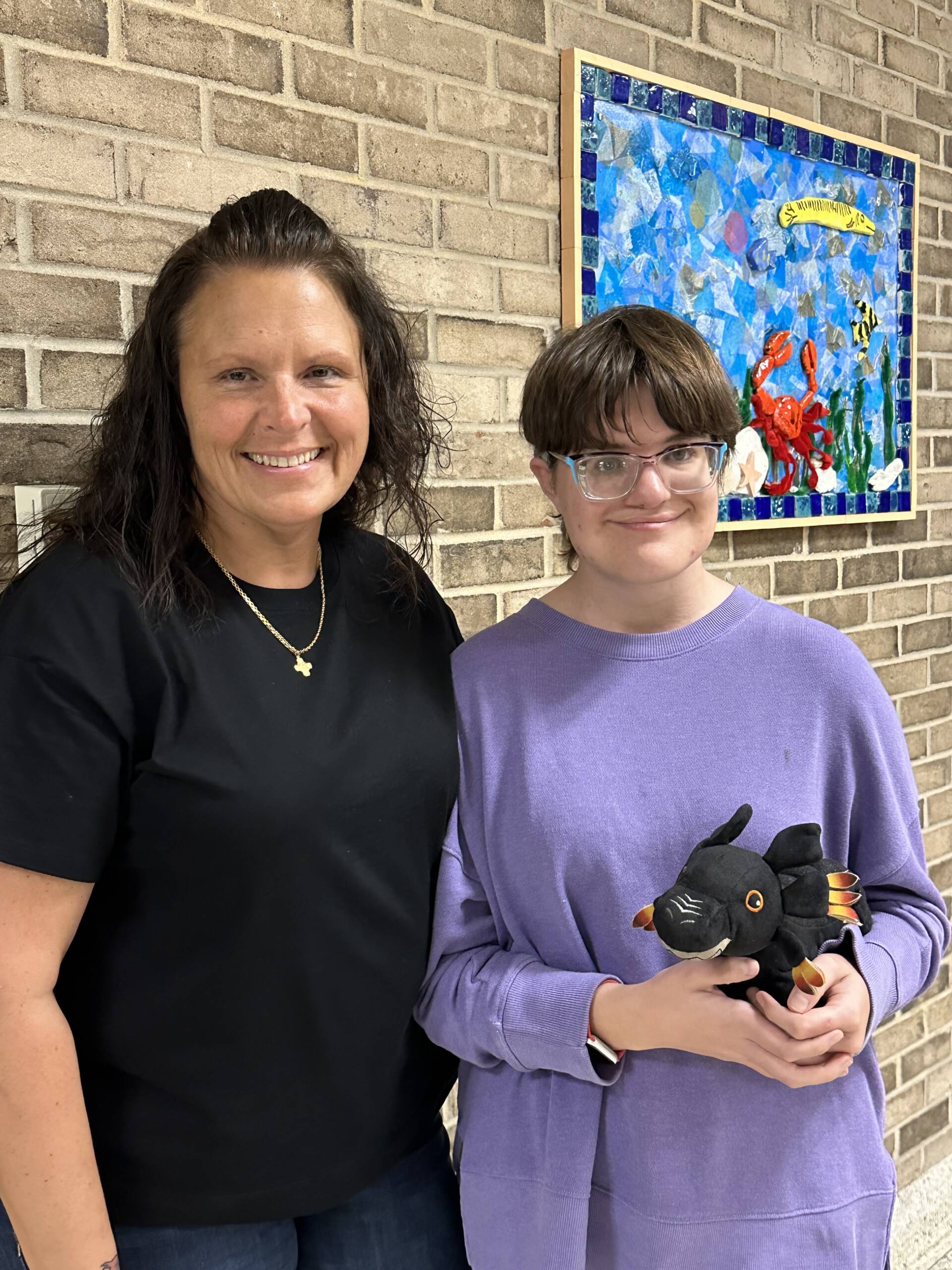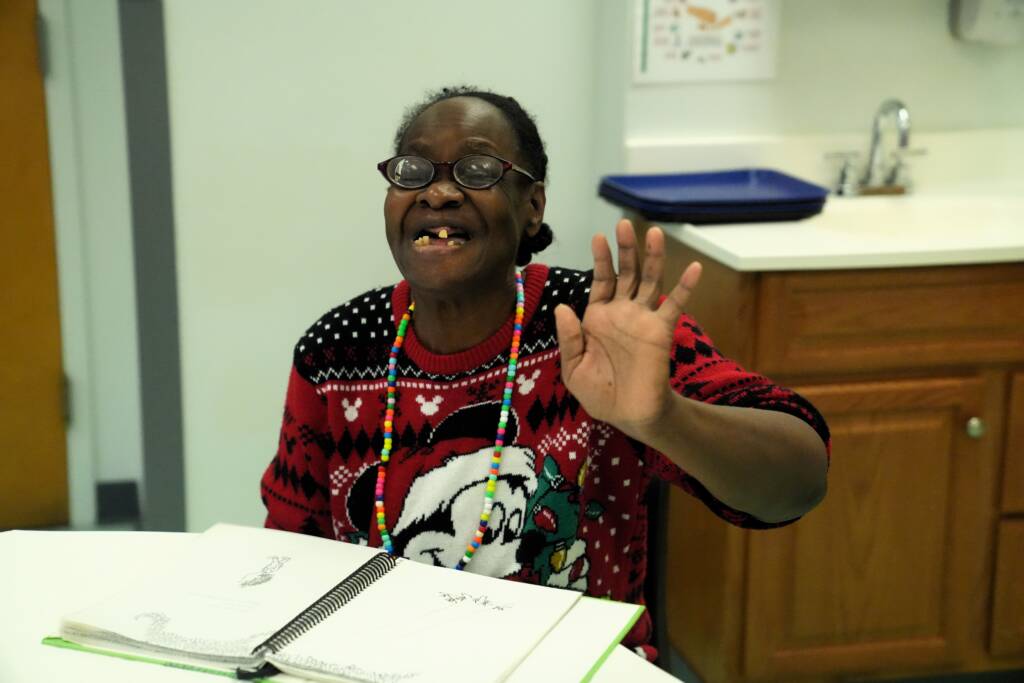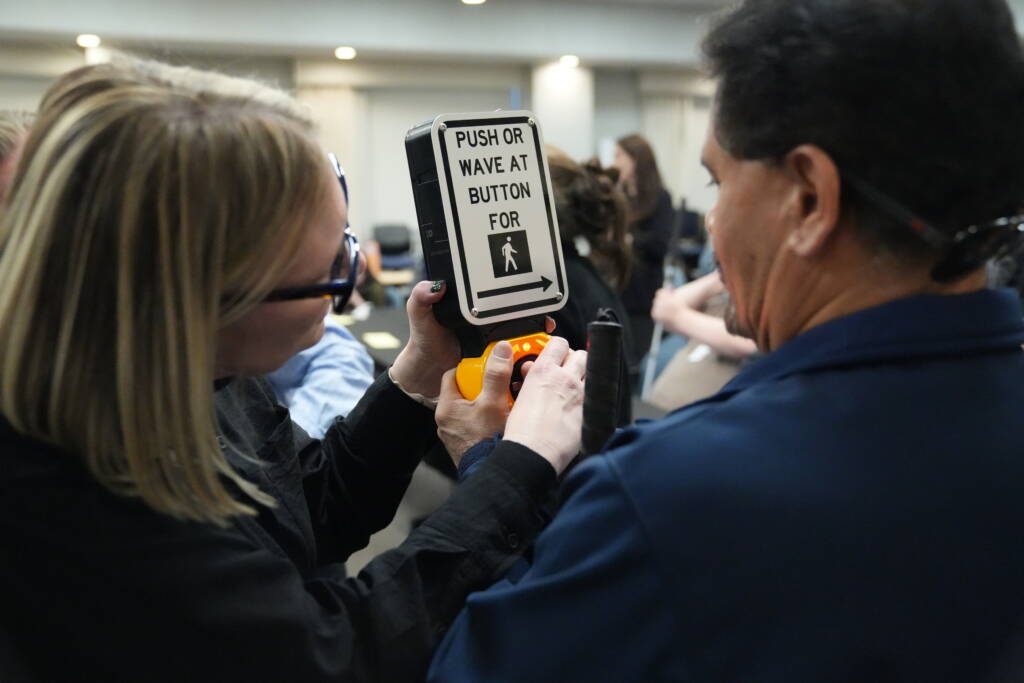The DeafBlind Immersion Experience (DBIE) is a comprehensive program offered by the Helen Keller National Center (HKNC). It provides an immersive experience for individuals who are DeafBlind with intellectual disabilities and their support team.
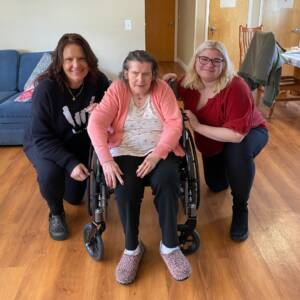
Who We Work With
- Participants range from transition-age through seniors, along with their support team.
- The goal is to create a person-centered profile for each participant, focusing on community, work, and home environments.
- Community work-based learning opportunities will be beneficial to gain skills for future employment.
Location
The DBIE takes place on the campus of HKNC headquarters in Sands Point, NY (New York). However, it is also flexible and can be conducted in the individual’s home community, in addition to offering customized consultative services nationwide. This adaptability ensures that participants receive tailored support regardless of their location.
Focus Person
During the comprehensive immersion experience, the individual (referred to as the “focus person”) has the opportunity to:
- Receive a lifestyle consultation by participating in preferred functional and meaningful activities related to work, home, and leisure.
- Explore various communication systems, which may include object cues, object symbols, picture cues, and basic visual, tactile methods which can include, tactile sign language.
- Receive functional consultation in Low Vision and Audiology.
- Identify environmental modifications, such as tactual tactile cues, visual contrast, low vision adaptations, audiological cues, and vibrating alerting systems.
- Discover vocational interests, strengths, and abilities.
- Exploration of assistive technology, which plays a crucial role in enhancing the participation and independence of individuals with disabilities.
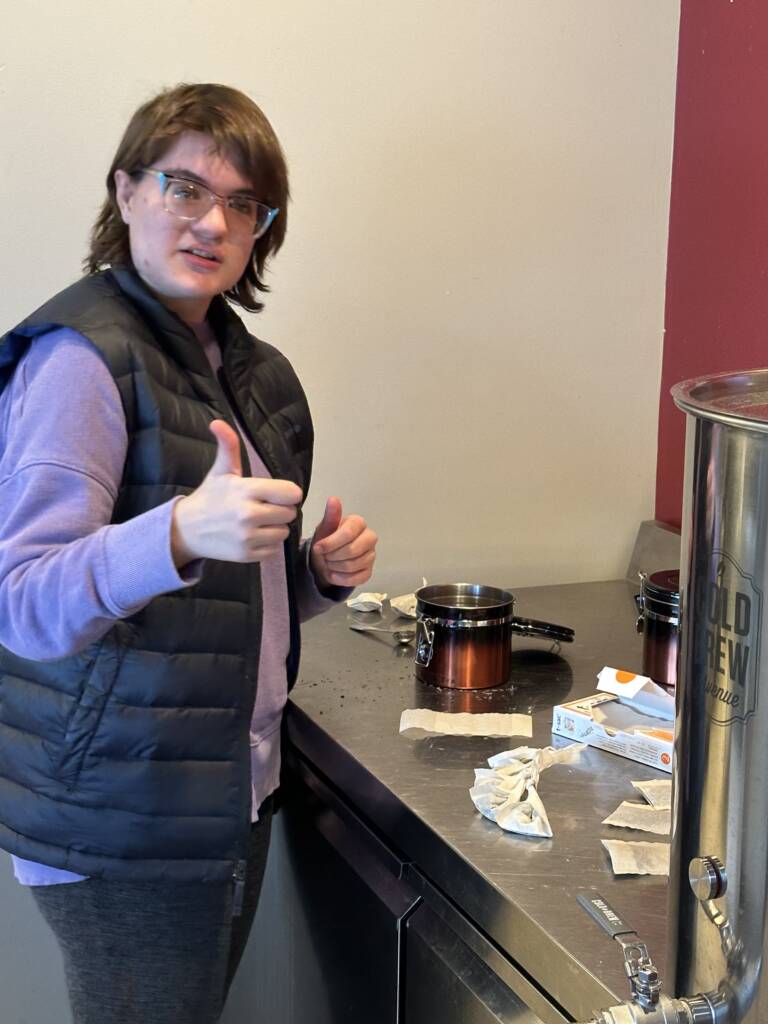
Support Team
The support team consists of those who assist the focus person. They have the opportunity to:
- Work closely with the HKNC team to identify goals, teaching strategies, resources, and a plan of action that will make the most impact for the focus person.
- Explore alternative communication systems, basic sign language, Haptics, and conversational approaches.
- Learn tactual teaching techniques and adaptive strategies for vocational and daily living activities.
- Participate in person-centered planning and contribute to an activities/communication portfolio for the focus person’s continued development.
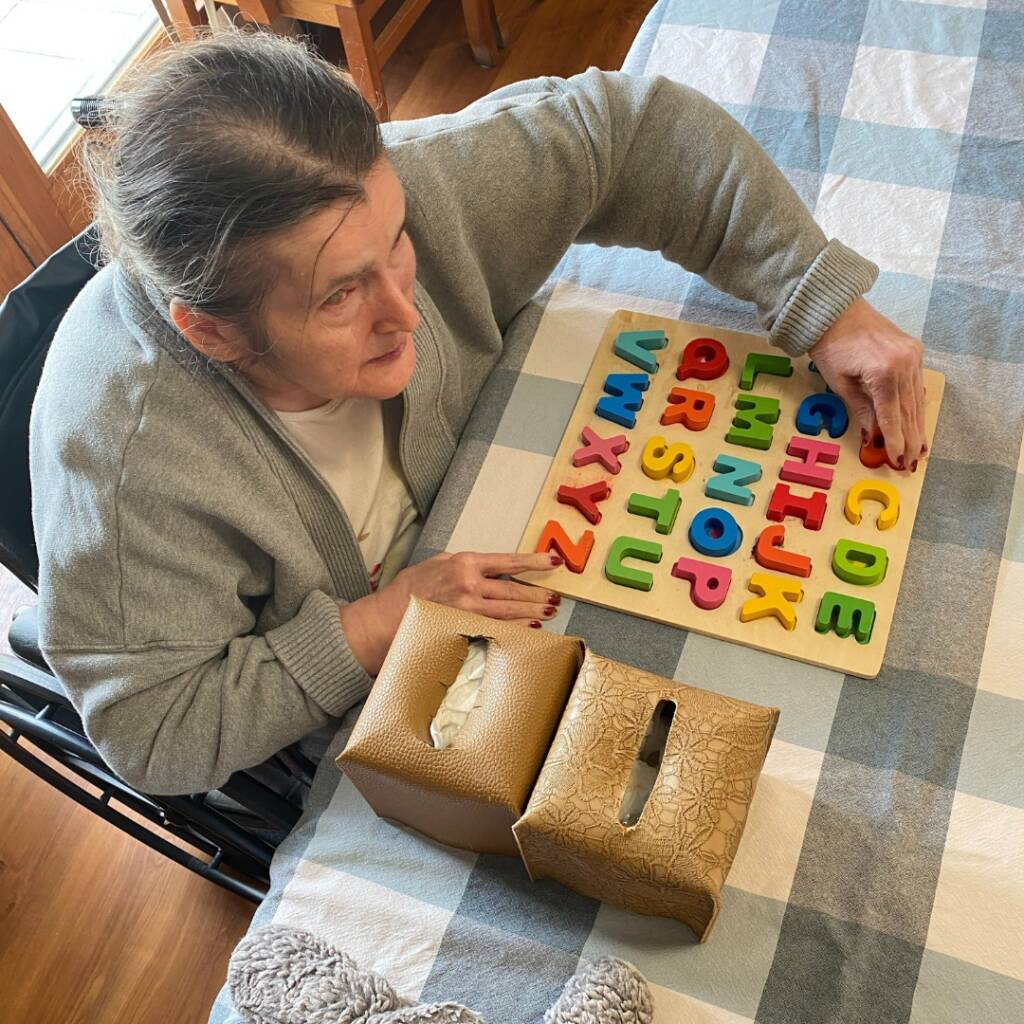
Residence and Community of Practice
- The focus person and their support team reside in the HKNC Residence during the program, if facilitated at the headquarters.
- Visiting support persons are responsible for the care, overall well-being and administering medications for the focus person.
- The entire team receives resources and recommendations and can join a community of practice. This community allows teams to share experiences, ask questions, and learn from each other.
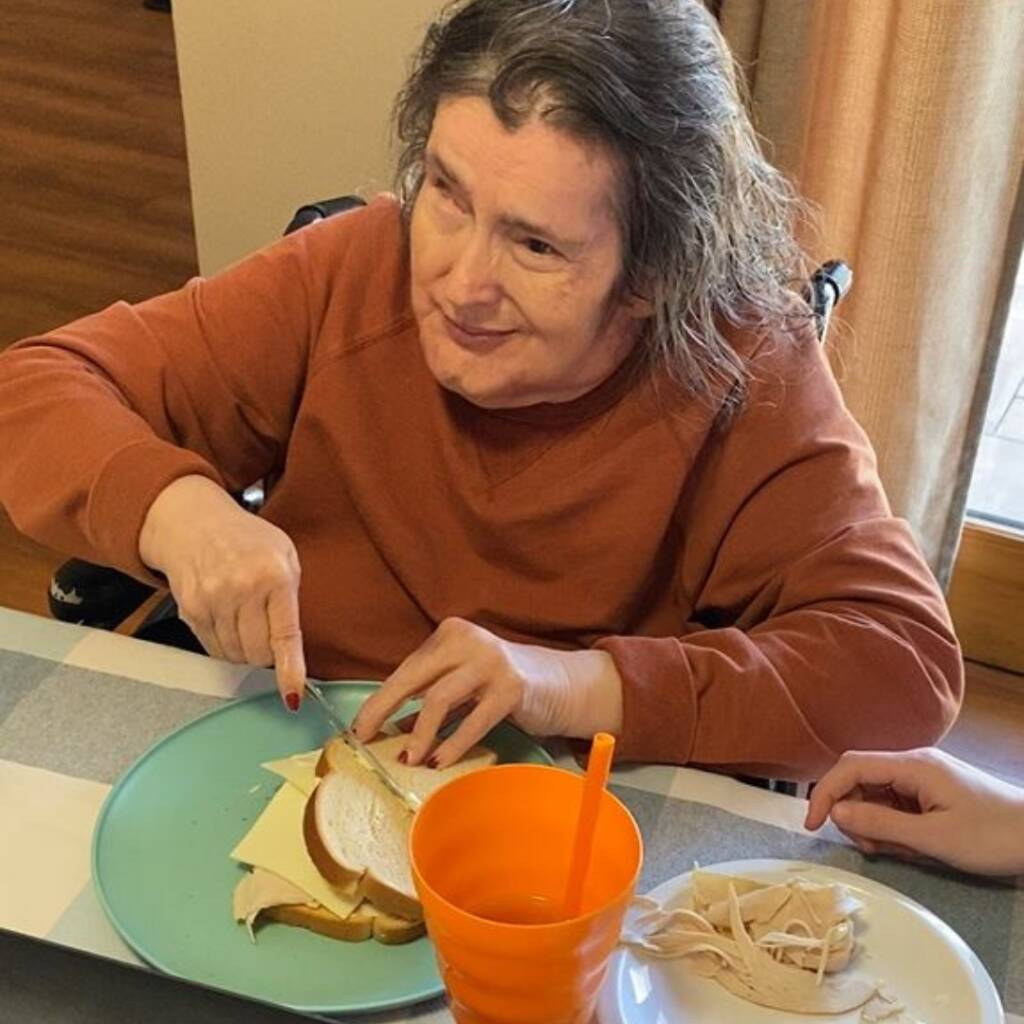
Who would benefit from the DeafBlind Immersion Experience Program
- Job Coaches: Job coaches play a crucial role in employment settings. By participating in the DBIE, job coaches can enhance their understanding of unique needs and communication methods.
- Habilitation Specialists: Habilitation specialists focus on skill development and daily living activities. Their participation in the DBIE allows them to gain insights into effective strategies for supporting individuals in various environments and to share their valuable insights about the person.
- Program Managers: Program managers oversee services and programs. By joining the DBIE, they can learn about person-centered planning, environmental modifications, and effective communication approaches.
- Behavior Specialists: Behavior specialists address the use of behavior to communicate behavioral challenges. The DBIE gives them tools and techniques to support individuals positively and respectfully.
- Teachers and Paraprofessionals: Teachers and paraprofessionals in educational settings can benefit from the DBIE by learning about inclusive practices, communication systems, and sensory adaptations for those who are transitioning to adult life.
- Transition Counselors: Transition counselors assist during critical life transitions, from school to work or independent living. Their participation in the DBIE helps them tailor transition plans.
- Developmental Disability Providers: Providers can expand their knowledge by participating in the DBIE. They will gain practical skills for supporting those who are DeafBlind in community, work, and home environments.
- Family Members: Family members play a vital role in the lives of the focus person. By joining the DBIE, they can learn effective communication methods, environmental adaptations, and ways to enhance their loved one’s quality of life.
The DBIE is a valuable initiative that empowers individuals and their support teams to enhance their quality of life and participation in various environments. Remembering that every person’s journey is unique, and a person-entered approach is key. By recognizing their strengths, needs, and aspirations, individuals with additional complex needs and their team can benefit from the immersion experience.
Contact Information
For more information, you can reach out to Tammie Christian, the Coordinator of the DeafBlind Immersion Experience, at tchristian@helenkeller.org.
